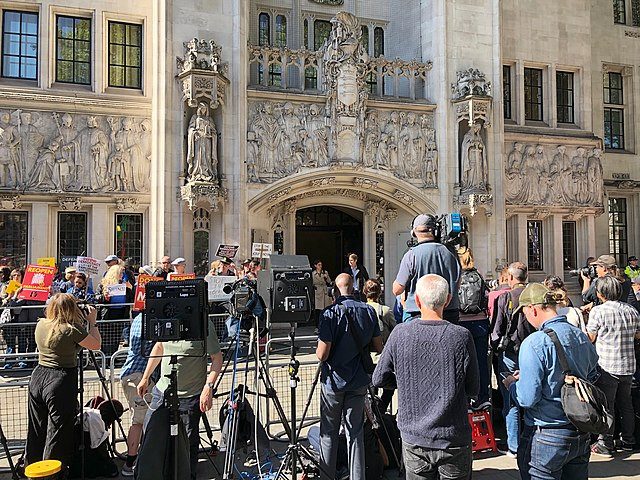The United Kingdom's Supreme Court ruled unanimously on Wednesday that the term "woman" under the nation's Equality Act refers strictly to biological sex, a landmark decision with sweeping implications for the country's gender policy, anti-discrimination protections, and access to single-sex spaces.
"The terms woman and sex in the Equality Act 2010 refer to a biological woman and biological sex," Lord Hodge stated from the bench. "The provisions relating to sex discrimination can only be interpreted as referring to biological sex."
The decision stems from a legal challenge brought by For Women Scotland (FWS), a women's rights group that opposed the Scottish government's inclusion of transgender women-those who hold gender recognition certificates (GRCs)-in a 2018 gender equity law mandating 50% female representation on public boards. FWS argued that expanding the legal definition of "woman" to include trans women overstepped the authority of the Scottish Parliament and undermined sex-based rights.
"Not tying the definition of sex to its ordinary meaning means that public boards could conceivably comprise of 50% men, and 50% men with certificates, yet still lawfully meet the targets for female representation," said FWS director Trina Budge.
In its defense, the Scottish government maintained that trans women with GRCs are legally recognized as women and should receive equal protection under the Equality Act. The guidance it issued stated that "woman" includes anyone with legal recognition of female gender status under the 2004 Gender Recognition Act.
But the court rejected that argument, stating that while the Gender Recognition Act changes an individual's legal sex for some purposes, it does not override the meaning of "sex" in the Equality Act.
"If transgender women with a GRC were afforded the same protected characteristic as biological women under the Equality Act," Hodge explained, "they would possess greater rights than those who do not," particularly in areas such as pregnancy and maternity leave.
The judgment, delivered by a five-judge panel, emphasizes that trans people are still protected under the Equality Act, but through different provisions. This interpretation "does not remove protection from trans people," Hodge said. A trans woman may claim discrimination on the grounds of gender reassignment, and because "she is perceived to be a woman."
The UK government welcomed the ruling. "This ruling brings clarity and confidence, for women and service providers such as hospitals, refuges, and sports clubs," a government spokesperson said. "Single-sex spaces are protected in law and will always be protected by this Government."






